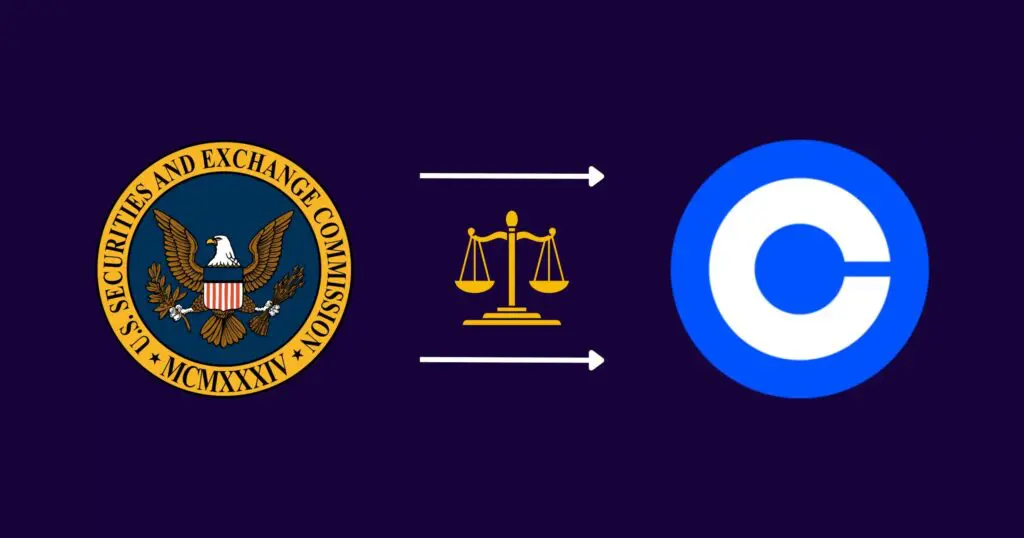Coinbase’s lawyers have asked a U.S. court to revoke a previous judgment by the SEC that labeled secondary crypto sales as security transactions. The exchange cited a case study to support its request.

Coinbase, the largest crypto exchange in the U.S., is still locked in a legal battle with the Securities and Exchange Commission (SEC), the federal regulator of the securities market. The exchange has recently filed a motion to remove a previous judgment by the SEC that classified secondary crypto sales as security transactions.
The motion was submitted to U.S. District Judge Katherine Failla on Tuesday by one of Coinbase’s lawyers, Michael Savitt. Savitt argued that the SEC’s judgment had “no weight” and was based on a flawed interpretation of the law.
He wrote,
“We write to provide further information not included in Plaintiff Securities and Exchange Commission’s (“SEC”) Notice of Supplemental Authority, ECF No. 103, relevant to the default judgment entered by the U.S. District Court for the Western District of Washington on the SEC’s unopposed motion in SEC v. Wahi .”
A case study to support Coinbase’s request
Coinbase’s letter to Judge Failla provided a case study to support its request. The case study was the SEC’s lawsuit against Ishan Wahi, Nikhil Wahi, and Sameer Ramani, filed in July 2022. The lawsuit alleged that the trio committed securities fraud by front-running cryptocurrencies based on insider information obtained from Coinbase.
One of the Wahi brothers worked at Coinbase as a software engineer.
The Wahi brothers filed a motion to dismiss the case on 6 February 2023, claiming that the cryptocurrencies they traded were not investment contracts and that the SEC had no jurisdiction over them. They cited the Howey test, a legal framework used to determine whether an asset is a security or not, and argued that the cryptocurrencies did not meet the criteria of the test.
On 1 June 2023, the SEC dropped the lawsuit against the Wahi brothers without providing any explanation. However, Ramani, who did not challenge the ruling, was suspected of fleeing the country and was still wanted by the authorities.
The implications of the SEC’s judgment
Coinbase’s motion to revoke the SEC’s judgment is a significant move, as it could have implications for the crypto industry as a whole. The SEC’s judgment, if upheld, could mean that any secondary sale of a cryptocurrency, such as on an exchange or a peer-to-peer platform, could be considered a security transaction and subject to the SEC’s regulations.
This could create a lot of uncertainty and compliance issues for crypto users and businesses.
Coinbase has been at odds with the SEC since September 2021, when the exchange announced its plans to launch a lending product called Coinbase Lend, allowing users to earn interest on their crypto holdings.
The SEC threatened to sue Coinbase if it launched the product, claiming it would involve selling unregistered securities. Coinbase decided to cancel the product in October 2021 but continued to challenge the SEC’s authority and transparency. The exchange also filed a complaint against the SEC in December 2021, accusing the regulator of engaging in unfair and abusive practices.
